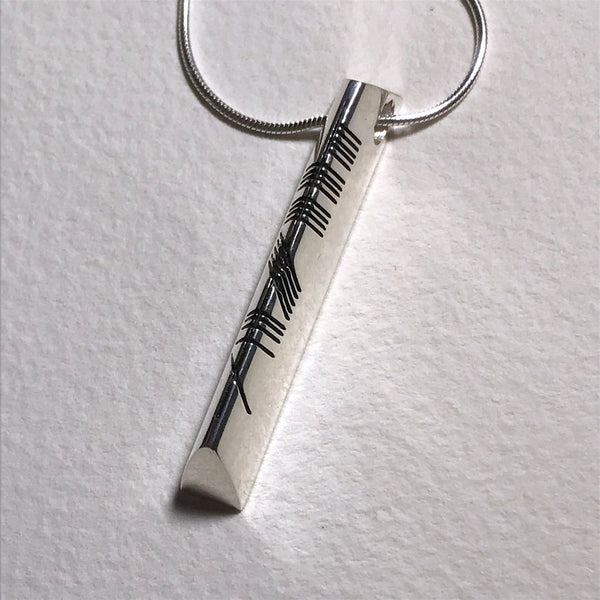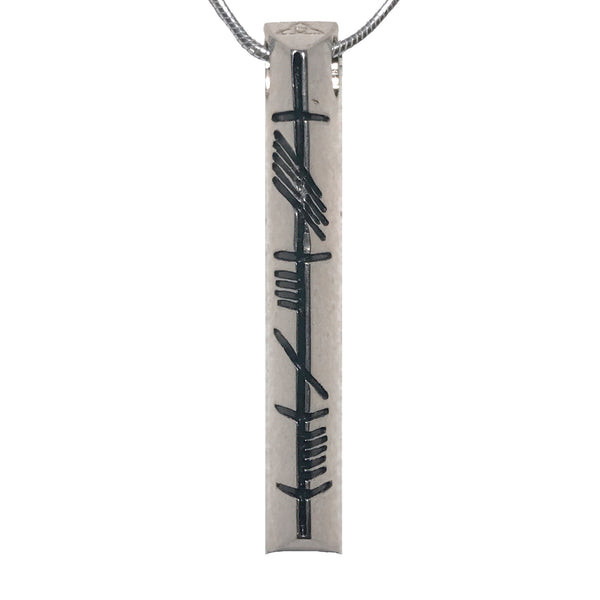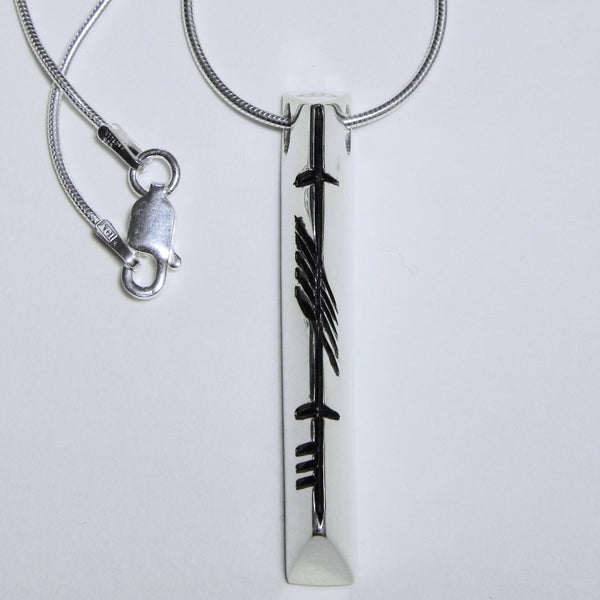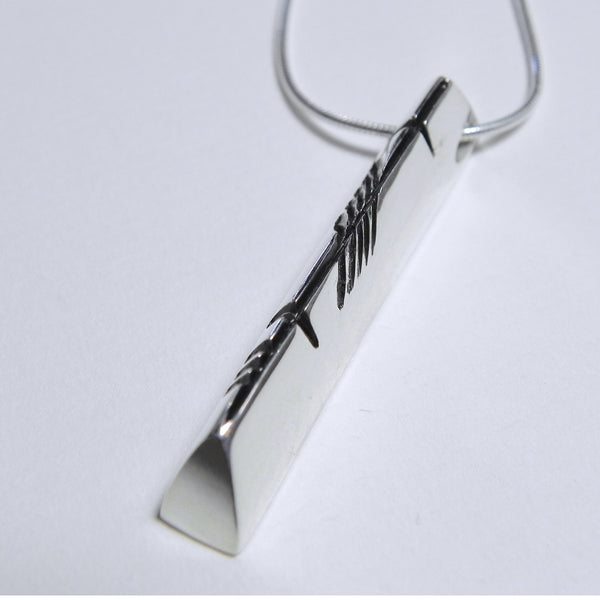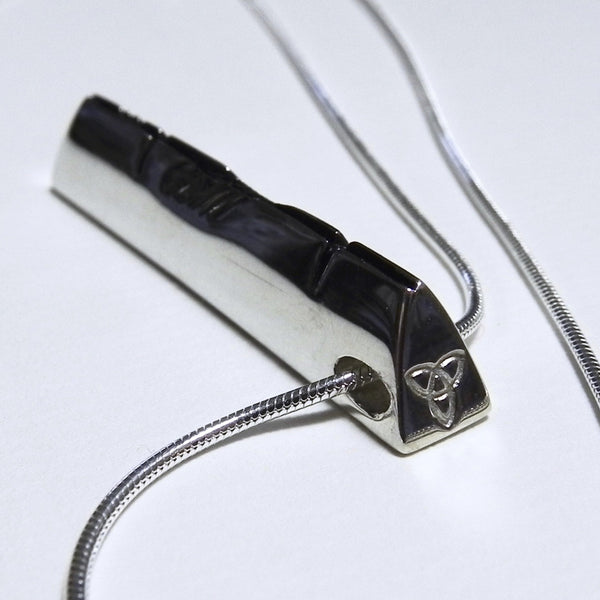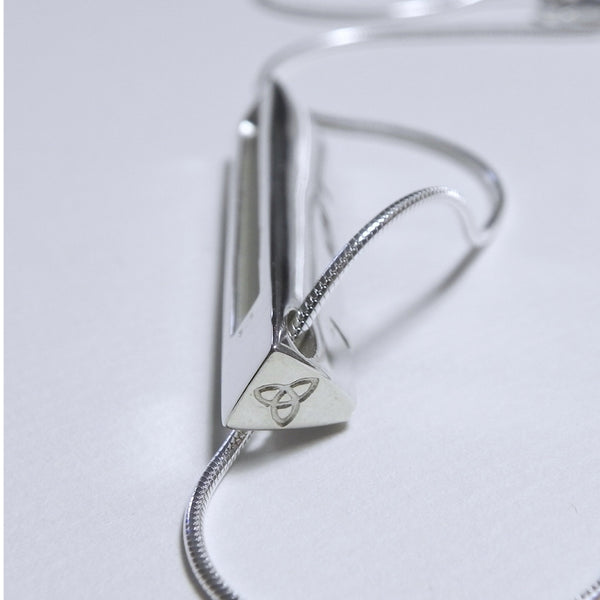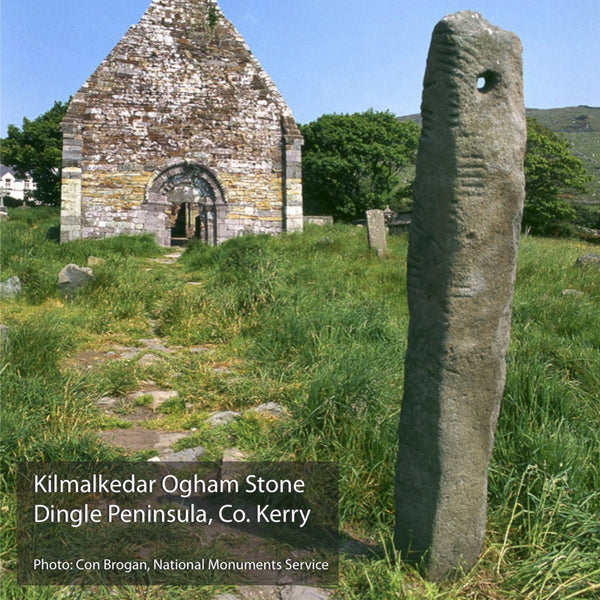Custom Sterling Silver Pendant
Inspired by the standing stones bearing the Ogham alphabet found in Ireland, our custom Ogham pendant features an elongated design with a peaked edge. Made of solid sterling silver (with a small rectangle cutout in the back to decrease stress on the chain), each pendant is accented with a trinity knot at the top.
Your chosen name or word is hand-painted by Ogham Art artist Colleen Conway. Each unique brushstroke is used as a guide for engraving your personalized pendant.
Our Ogham custom pendant includes a quality sterling silver round magic chain. It is presented in a black velvet box with satin lining complete with a descriptive label and a history of the Ogham alphabet. Measurements of pendant are 1.63" (4.2 cm) long and 1/4" (0.6 cm) wide with the peaked inscription area just under 1.5".
(Due to the nature of the Ogham alphabet, words and names may appear longer once presented; therefore, you will be limited to entering a maximum of 10 letters. Ogham Art will contact you with any concerns about your custom order including names/words too long to accommodate. If you have any questions, please contact us at custom@oghamart.com.)
Ships within 4-6 weeks. USPS shipping times are in addition to this handling period.








